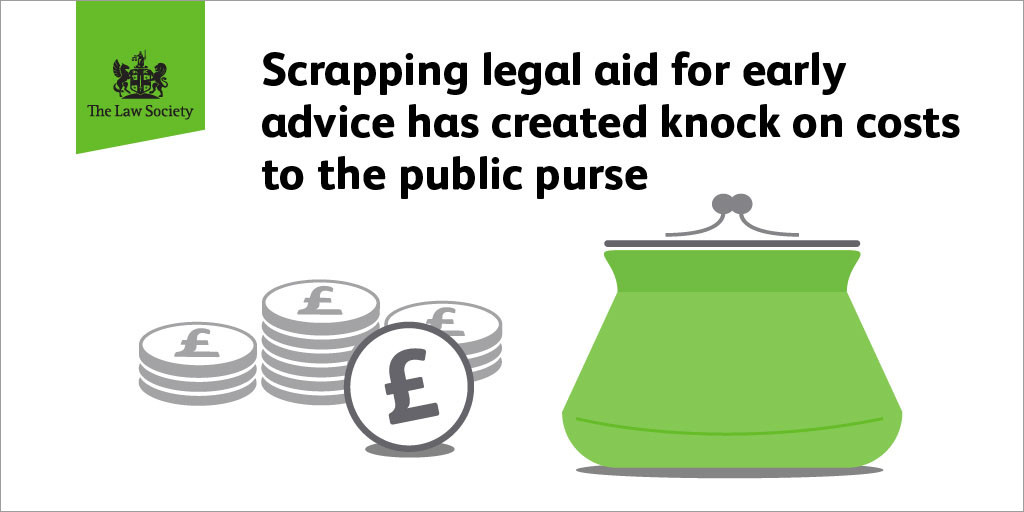30/01/2018

The Law Society is launching a campaign for legal aid to be reintroduced for early advice following growing concerns over the lack of early intervention in family and housing law issues.
The findings of an Ipsos MORI report, commissioned by the Law Society, demonstrates a clear link between getting early legal advice and resolving a problem sooner.
Since the government cut the majority of legal aid in 2012, people have had to pay for advice they receive. Those who can’t afford it are left to deal with the issue alone and frequently end up representing themselves in court. Having little or no legal experience all too often compounds the problem. Many lawyers believe that legal aid prevents further costs to the tax payer because it allows people to instruct a solicitor from the outset which can prevent a case ending up in court.
The report defined early legal advice as ‘within three months of the issue first occurring’. It stated that on average, 25% of those who received early advice had resolved their issue within three to four months of it arising. In contrast, 25% of those who hadn’t received early advice didn’t resolve their problem until nine months after it first occurred.
Amanda Connor, head of family law at Russell and Russell, believes the cuts to legal aid have been detrimental to the system: “Clearly, if a case is complex or serious in nature, it requires the expert advice of a solicitor. It’s ridiculous to expect someone to run a case, particularly through court, without having any legal experience, but unfortunately this is what’s happening. Situations like this just complicate things further because in some instances the matter doesn’t get resolved at all or the court process gets slowed down which inevitably results in more expense for the tax payer.”
Please note that this article is meant as general guidance and not intended as legal or professional advice. Updates to the law may have changed since this article was published.

